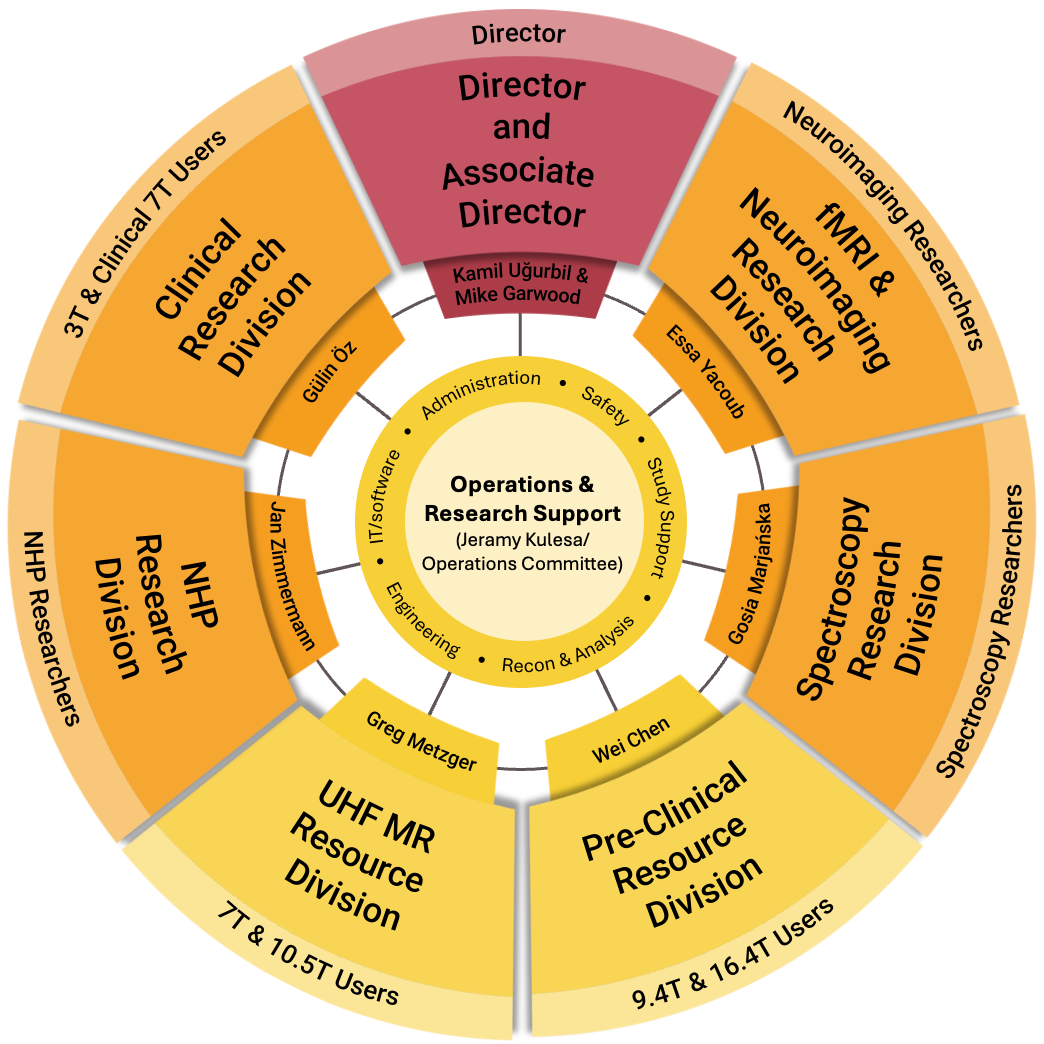
CMRR
Center for Magnetic Resonance Research, Department of Radiology
About the CMRR
You are here
Center for Magnetic Resonance Research (CMRR), funded as a Biotechnology Research Center (BTRC) by the National Center for Research Resources (NCRR) until 2012 and by the National Institute of Biomedical Imaging and Bioengineering (NIBIB) since then, focuses on development of unique magnetic resonance (MR) imaging and spectroscopy methodologies and instrumentation for the acquisition of structural, functional, and biochemical information non-invasively in humans, and utilizing this capability to investigate organ function in health and disease.
The distinctive feature of this center is the emphasis on ultrahigh magnetic fields (7 Tesla and above), which was pioneered by this BTRC. This emphasis is based on the premise that there exists significant advantages to extracting biomedical information using ultrahigh magnetic fields, provided difficulties encountered by working at high frequencies corresponding to such high field strengths can be overcome by methodological and engineering solutions.
CMRR is home to some of the most advanced MR instrumentation in the world, complemented by human resources that provide unique expertise in imaging physics, engineering, and signal processing. No single group of scientists can successfully carry out all aspects of this type of interdisciplinary biomedical research; by bringing together these multi-disciplinary capabilities in a synergistic fashion, facilitating these interdisciplinary interactions, and providing adequate and centralized support for them under a central umbrella, CMRR amplifies the contributions of each of these groups of scientists to basic and clinical biomedical research.
Collectively, the approaches and instrumentation developed in CMRR constitute some of the most important tools used today to study system level organ function and physiology in humans for basic and translational research, and are increasingly applied world-wide.
CMRR Organizational Chart

| Division | Division Head | Supports |
|---|---|---|
| Director and Associate Director | Kamil Uğurbil and Mike Garwood | CMRR |
| fMRI and Neuroimaging Research Division | Essa Yacoub | Neuroimaging Researchers |
| Spectroscopy Research Division | Gosia Marjańska | Spectroscopy Researchers |
| Clinical Research Division | Gülin Öz | 3T and Clinical 7T Users |
| NHP Research Division | Jan Zimmermann | NHP Researchers |
| UHF Resource Division | Greg Metzger | 7T and 10.5T Users |
| Pre-Clinical Resource Division | Wei Chen | 9.4T and 16.4T Users |
| Operations and Research Support | Jeramy Kulesa and the Operations Committee | Administration, Safety, Study Support, IT/Software, Engineering, Reconstruction and Analysis |
